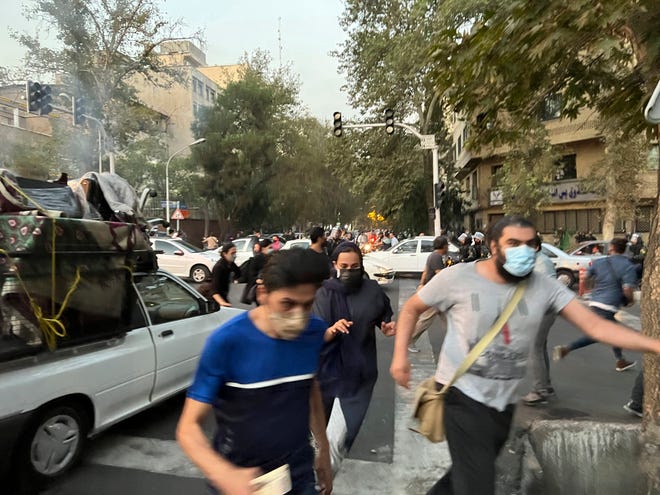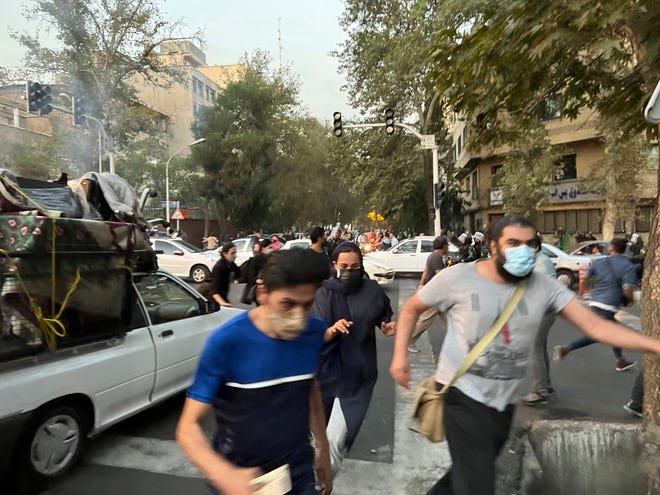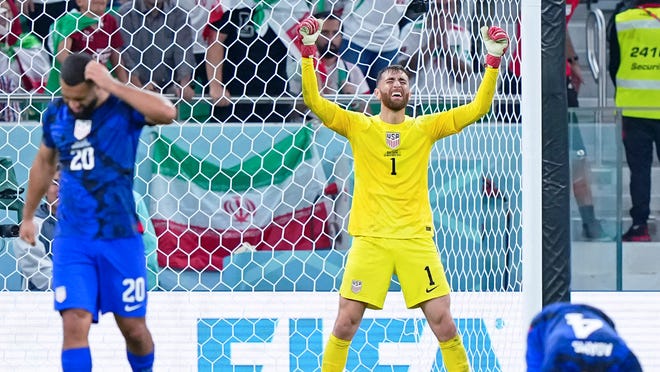Iran is apparently shutting down its “morality police” amid violent protests sweeping the nation since the death of a woman who was forcibly taken into custody after being accused of violating the theocracy’s strict Islamic dress code.
Iranian Attorney General Mohamed Jafar Montazeri, speaking Sunday at a religious conference, said the Gasht-e Ershad “had nothing to do with the judiciary and have been shut down.” The Gasht-e-Ershad reported to Iran’s Interior Ministry.
Mahsa Amini, 22, died in custody Sept. 16 after being accused of breaking a 1983 law requiring women to wear a head scarf, or hijab. Outrage ensued, and a growing number of women have stopped wearing the hijab.
The Interior Ministry said Sunday that over 200 people, including security forces and civilian, have died in the protests. Damage was estimated at $40 million. Human Rights Activists in Iran, a group monitoring the demonstrations, says 470 protesters and 61 security personnel have died – and that 18,000 people have been arrested, at least seven sentenced to death.
“The administration and parliament insisted that paying attention to the people’s demand that is mainly economic is the best way for achieving stability and confronting the riots,” lawmaker Nezamoddin Mousavi said Sunday following a meeting of top-level Iranian officials.
On Saturday, Montazeri said the hijab law would be reviewed and that recommendations could come in a week or two. President Ebrahim Raisi, who called for a crackdown on the hijab law in July, also showed signs of retreat.
“There are methods of implementing the constitution that can be flexible,” he said.
IRAN FANS DIVIDED:Some Iranians favored the US in World Cup match against US

The morality police was established in 2005 under then-President Mahmoud Ahmadinejad, a hard-liner who sought to “spread the culture of modesty and hijab.” Women also are required to cover their bodies in long, loose clothing.
The uprisings have rolled across dozens of cities, and the government has blocked internet connectivity across the nation. Mass arrests of students, journalists, activists, artists, sports figures and celebrities who expressed grievances with Iran’s hard-line government have become almost daily events.
The issue spread into the World Cup underway in Qatar when players on Iran’s national team refused to sing the national anthem in their first match against England. The team later lost to the U.S. team, and many Iranians took to the streets to celebrate because the team was seen as close to the regime, the Iran Human Rights Documentation Center reported.





